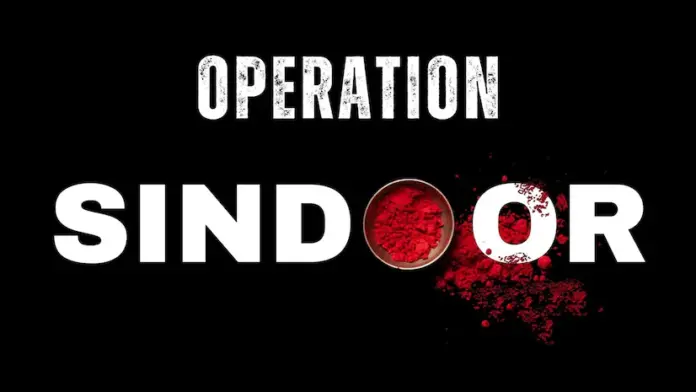In recent weeks, the Indian government launched Operation Sindoor, a humanitarian mission that drew worldwide attention, not just for its success, but for something far rarer in our times: political unity. In an age where sharp ideological divides often define every debate, it was heartening to see leaders across party lines stand together for the cause of the nation. Whether it was a spokesperson from the ruling party addressing the UN or a delegate from the opposition talking to global media in London, the message was the same: India first.
But as I watched these moments unfold with pride, a more uncomfortable thought started creeping in. While our leaders unite for the nation, why are we, the people, still divided? From racism to regionalism, from language wars to caste discrimination, we seem to be constantly at odds. The contrast between the unity displayed at the top and the chaos brewing at the ground level couldn’t be more stark.
And so, this blog isn’t just about Operation Sindoor. It’s about us, our contradictions, our struggles, and what our future looks like if we continue down this path.
What is Operation Sindoor?
Before we go deeper, let’s briefly understand Operation Sindoor. Launched by the Indian government as an emergency evacuation mission in response to a conflict overseas, it was aimed at bringing stranded Indian citizens, primarily students, workers, and families, back home safely. The name “Sindoor” symbolises the sacred mark often associated with safety, protection, and tradition in Indian culture.
What made this operation special wasn’t just the scale or logistics; it was the coordinated diplomatic outreach. From embassies to international forums, Indian officials spoke with one voice. It wasn’t the BJP’s mission. It wasn’t Congress’s initiative. It was India’s humanitarian responsibility.
And in that rare political harmony, something beautiful emerged, a glimpse of what’s possible when unity outweighs ideology.
Read More About Operation Sindoor
Political Unity: When Ideologies Take a Backseat
Historically, India has seen several moments of cross-party collaboration in times of crisis, from the 1971 war to disaster relief efforts. But in today’s hyper-polarised political climate, such unity has become almost extinct.

So when we see government spokespersons, opposition leaders, and even regional party members rallying together under the Indian flag on global platforms, it’s a reminder that patriotism is not party-specific.
What can we learn from this?
- National interest can override political rivalry.
- Dialogue and collaboration are still possible.
- India shines brightest when her people pull in the same direction.
But this brings us to the real question: if our politicians can do it, why can’t we?
Citizens Still Divided: The Everyday Discrimination We Normalise
Walk down any street in India today and you’ll likely encounter the tension, not always in words, but in tones, glances, judgments.
Some examples that hurt to admit:
- North vs South India jokes that disguise deep-seated regional prejudices.
- Mocking the accents of people who speak Hindi with a different tone or struggle with English.
- Fair skin is still being glorified, and dark skin is still being subtly shamed.
- People from the Northeast are being stereotyped as foreigners or treated with suspicion.
- Caste still determines marriages, access to resources, and in some areas, basic respect.
- Religious polarisation is increasingly seeping into everyday interactions, from schools to workplaces.
In short, while Operation Sindoor symbolised collective strength, our daily interactions reflect collective failure.
A Personal Reflection: When National Pride Meets Social Discomfort
I’ll be honest, when I first heard of Operation Sindoor, I felt a wave of national pride. Seeing those young students, teary-eyed as they landed safely at the Delhi airport, reunited with their families, it moved me.
But later that day, I overheard a conversation at a café where a group of educated young adults made fun of a man’s “southie accent” and joked about how “they should speak proper Hindi if they’re in Delhi.”
It hit me hard.
How can we talk about unity and global dignity when we can’t treat each other with basic respect in our own cities?
Are we building a strong nation outwardly, while it’s hollowing from within?
Why Are We Like This?
There’s no single answer, but here are some uncomfortable truths:
1. Inherited Prejudices
Much of our discrimination is passed down through homes, schools, and media. We inherit biases like family jewellery, unaware that they’re tarnishing our humanity.
2. Lack of Dialogue
We’ve become a nation that reacts more than it reflects. Most of us live in social media echo chambers, where opposing views are mocked or blocked.
3. Misunderstood Identity
We often confuse regional pride with regional supremacy. Speaking one’s language or celebrating a culture is beautiful, but using it as a tool to judge others isn’t.
4. Ignorance Masquerading as Humour
Many of the things we say in jest, from calling someone “chinki” to mocking someone’s dark skin, are deeply harmful. But we brush them off as jokes, not realising the damage they do.
What’s the Cost of This Disunity?
You may think: “These are small things. We’re still progressing.” But here’s the thing, societal cracks have a way of becoming earthquakes.
Here’s what’s at stake:
- A divided population is easy to manipulate, politically, economically, and socially.
- Youth carry trauma forward, and discrimination at a young age breeds bitterness.
- Innovation and collaboration suffer if we don’t trust or respect each other. How do we build together?
- The idea of India , as a plural, diverse, inclusive democracy , gets compromised.
So, What Can We Do?
You may wonder, what difference can I make? The answer is: a lot.
Because change doesn’t start in parliament. It starts in living rooms, classrooms, and WhatsApp groups.
Here’s what each of us can try:
1. Challenge Discrimination in Daily Life
- Speak up when someone makes a racist or casteist joke.
- Don’t just avoid uncomfortable conversations, initiate them.
2. Celebrate Regional and Cultural Diversity
- Learn about different cultures within India.
- Respect languages and traditions different from your own.
3. Raise Children Differently
- Teach them empathy, not superiority.
- Help them unlearn what older generations may have normalised.
4. Use Social Media Wisely
- Stop sharing or liking content that promotes hate or division.
- Follow diverse voices to broaden your perspective.
5. Support Inclusive Policies and Leaders
- Vote for those who unite, not divide.
- Demand accountability from leaders who use hate for votes.
Our Future Is Still in Our Hands
Operation Sindoor showed us what’s possible when we come together. The question now is, can we extend that unity to our homes, streets, and minds?
We can’t wait for another international crisis to feel patriotic or united. Our true test as citizens lies not in how we react during a global emergency, but how we treat each other on an ordinary Tuesday afternoon.
So next time you find yourself making a judgment based on someone’s surname, language, skin tone, or region, pause.
Ask yourself: Is this who I want to be? Is this the India I want to help build?
Because if we truly want to be proud of our country on the world stage, we need to clean up the mess in our own backyard. Operation Sindoor was a success. But Operation Unity? That’s still in progress, and we’re all part of it.
Start your website for free, then enjoy the 3 months for $1
Operation Sindoor stands as a testament to what India can achieve when united. The political solidarity displayed offers a blueprint for addressing internal societal challenges. By extending this unity beyond politics into everyday social interactions, India can aspire to become a truly cohesive and inclusive nation.
Frequently Asked Questions (FAQs)
Q1: What is Operation Sindoor?
A: Operation Sindoor was a military operation launched by India on May 7, 2025, targeting terrorist camps in Pakistan and Pakistan-occupied Kashmir in response to the Pahalgam terror attack.
Q2: How did Operation Sindoor demonstrate political unity in India?
A: Leaders from various political parties collaborated to present a united front against terrorism, including forming all-party delegations to brief foreign governments.
Q3: What technologies were used in Operation Sindoor?
A: The operation utilised AI-powered drones like Harop and Heron, along with indigenous defence systems, showcasing India’s technological advancements.
Q4: What are some societal divisions present in India?
A: Issues include racism, colourism, regionalism, and linguistic discrimination, affecting social harmony and national cohesion.
Q5: How can India address its internal societal divisions?
A: Through educational reforms, media representation, community engagement, and effective policy implementation to promote inclusivity and deter discrimination.


